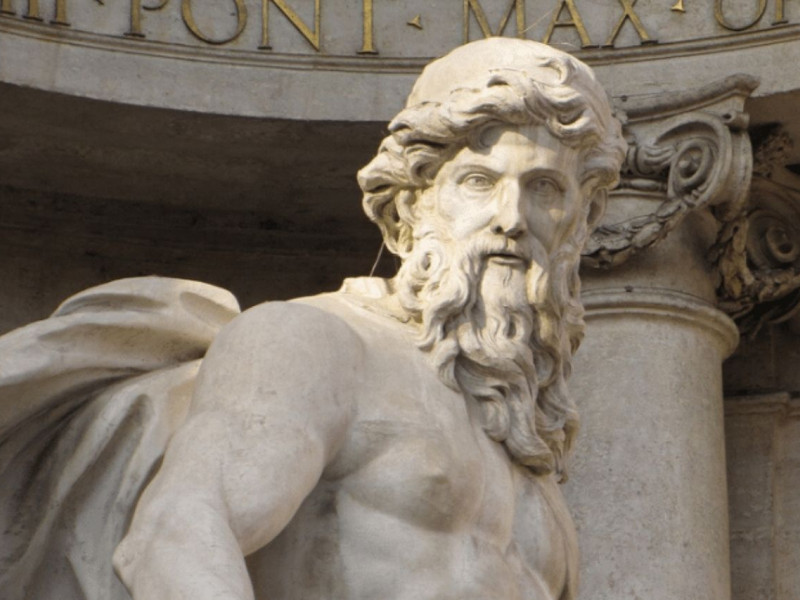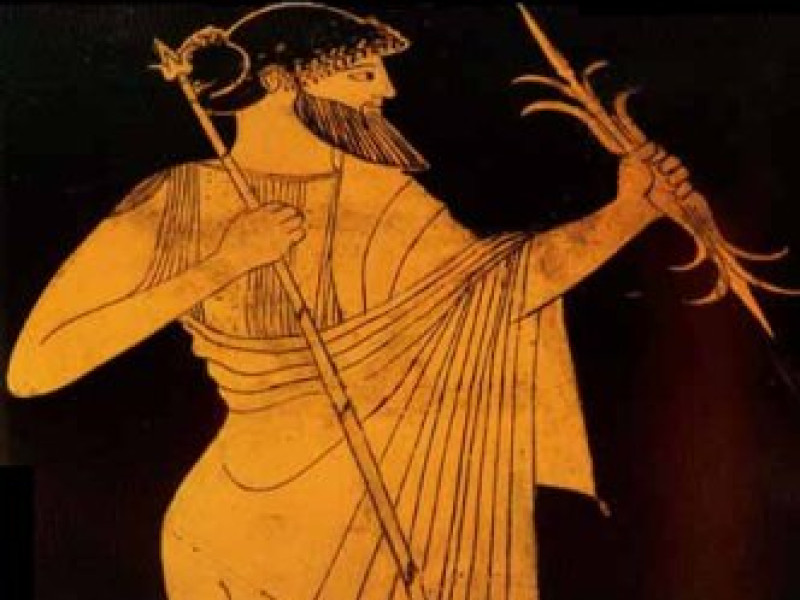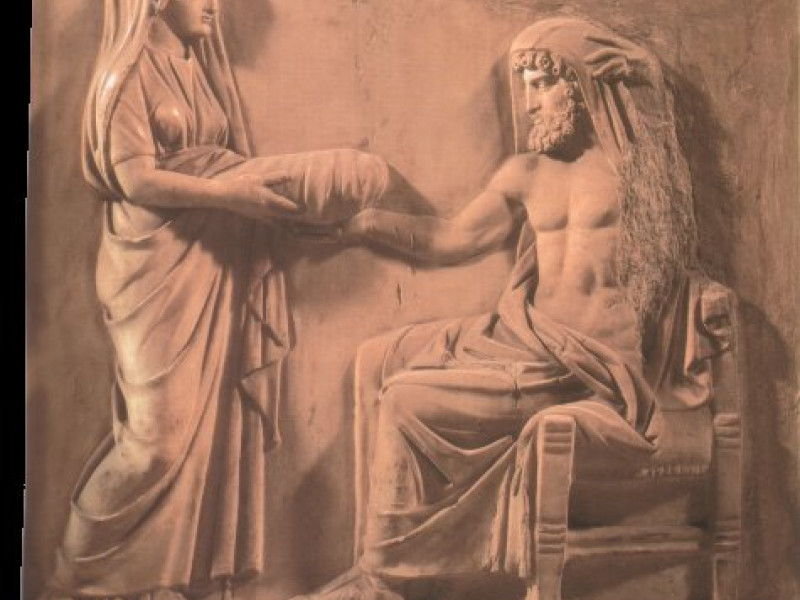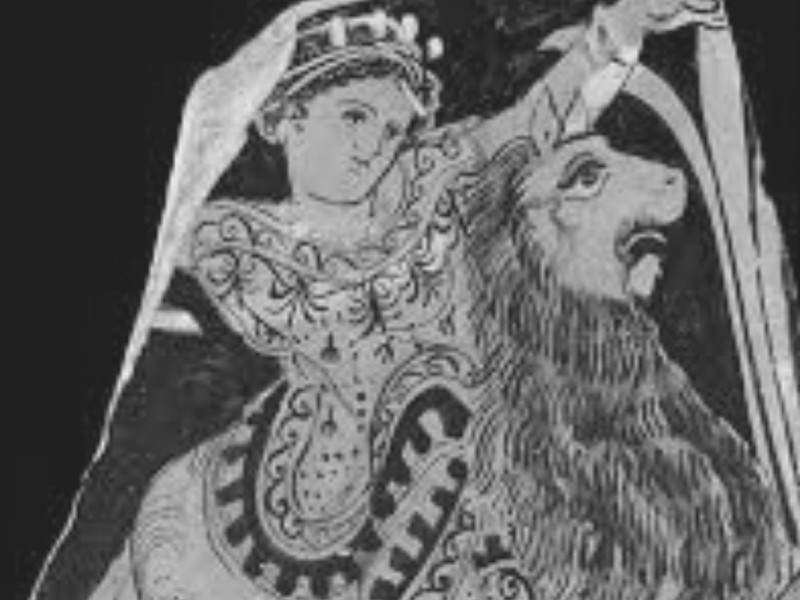Cronus (Saturn)
Ruler of the universe and the leader of the Titans. Cronus was the youngest son of Uranus and Gaea; according to Diodorus Siculus however, he was the eldest child.
Cronus married his sister Rhea and was the father of Hestia, Poseidon, Hades, Demeter, Hera and Zeus.
Cronus was the sky god and the chief god of the universe, after overthrowing Uranus. Uranus became powerless when his son castrated him. Cronus was also the god of agriculture and fertility. The Romans identified him as Saturn, the Roman god of agriculture. In astronomy, Saturn is the 6th planet in the solar system. Before the telescope was invented, it was the last planet that could be seen with the naked eye, so in much of history Saturn was the outermost planet in the solar system. Saturn is classified as a large gas giant planet, best-known for its rings.
When his father (Uranus) imprisoned his brethren, the Hundred-Handed and the Cyclops, within Gaea's body, it caused his mother-wife great suffering. Gaea appealed to her youngest son to help release them. Cronus, being the strongest and most cunning of the Titans, agreed to help. Cronus severed his father's genitals with a sickle and threw them in the sea. (See War of the Gods)
Overthrowing his father (Uranus), Cronus became the supreme ruler of the universe. He shared the rule with other Titans. Cronus supplanted Uranus as the god of the sky. During his reign Cronus created mankind, which was marked as an era of the Golden Age, the most peaceful time of mankind (See Five Ages of Man).
Instead of releasing the Hundred-Handed and the Cyclops, he kept them imprisoned in Tartarus, the lowest region of the Underworld. Outraged that her son did not release her other children - the Hundred-Handed and the Cyclops - Gaea foretold that a day would come when Cronus' own sons would overthrow him.
Fearing he would suffer from the same fate as his father, Cronus tried to prevent it by swallowing each child after they were born. Rhea managed to trick her husband by giving him a large stone covered in swaddling cloth instead of her last child, Zeus. Cronus swallowed the stone. Rhea then secretly sent her son to Crete, where he was brought up.
When Zeus reached adulthood, Rhea tricked Cronus into drinking an emetic so that Cronus disgorged their other children. War broke out between Cronus and the other Titans against the younger gods. The younger deities became known as the Olympians. Cronus and the other Titans were defeated when Zeus released the Hundred-Handed and the Cyclops from Tartarus. Most of the male Titans were imprisoned in Tartarus. Zeus then became supreme ruler of the universe.
By Jimmy Joe






